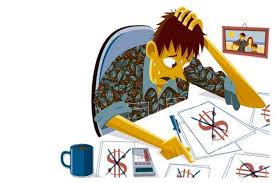Debt can feel like a weight that holds you back—but it doesn’t have to. With the right strategy and mindset, you can take control of your debt, reduce stress, and make room for wealth-building in your future.
In this article, you’ll learn how to manage different types of debt, choose a repayment strategy, and build habits that help you stay debt-free.
Why Managing Debt Matters
- Saves money on interest
- Improves your credit score
- Increases your financial freedom
- Reduces mental stress and anxiety
- Frees up money for savings and investing
Debt is not always bad—but uncontrolled debt is always costly.
Types of Debt
✅ Good Debt
Used for long-term growth or value:
- Student loans
- Mortgages
- Business loans
These can be beneficial if managed well.
❌ Bad Debt
Used for consumption, not growth:
- Credit card balances
- Payday loans
- High-interest consumer debt
These hurt your financial health if left unchecked.
Step-by-Step: How to Pay Off Debt Effectively
1. List All Your Debts
Include:
- Total balance
- Interest rate
- Minimum payment
- Due date
Use a spreadsheet, app, or debt tracker.
2. Choose a Repayment Strategy
❄️ Debt Snowball Method:
- Pay smallest debt first
- Builds motivation through quick wins
- Good for emotional momentum
🔥 Debt Avalanche Method:
- Pay highest-interest debt first
- Saves more money long-term
- Good for mathematical efficiency
Choose the one you’ll stick to—consistency is key.
3. Create a Monthly Repayment Plan
- Make all minimum payments
- Put any extra money toward your target debt
- Track progress and celebrate milestones
4. Cut Unnecessary Spending
Every dollar saved is a dollar toward freedom:
- Cancel unused subscriptions
- Eat out less
- Pause big purchases
- Lower utility or insurance costs
Redirect savings into debt payments.
5. Increase Your Income
- Ask for a raise
- Take a freelance gig or side hustle
- Sell unused items
- Offer a skill or service
Use extra income to accelerate debt payoff.
6. Avoid New Debt
- Stop using credit cards (or freeze them)
- Build an emergency fund to avoid future borrowing
- Be mindful of emotional or impulse spending
Paying off debt while adding more is like bailing water from a leaking boat.
7. Build Healthy Habits After You’re Debt-Free
- Keep tracking your expenses
- Save aggressively
- Start investing
- Reward yourself responsibly
Use your past struggles as fuel for smarter financial decisions.
Final Thoughts: Take Control and Move Forward
Debt doesn’t define your future—but your actions today will. With a clear plan, strong habits, and a bit of patience, you can eliminate your debt and start building a life of peace, flexibility, and financial independence.
Start today. One payment, one step at a time—you’ve got this.
